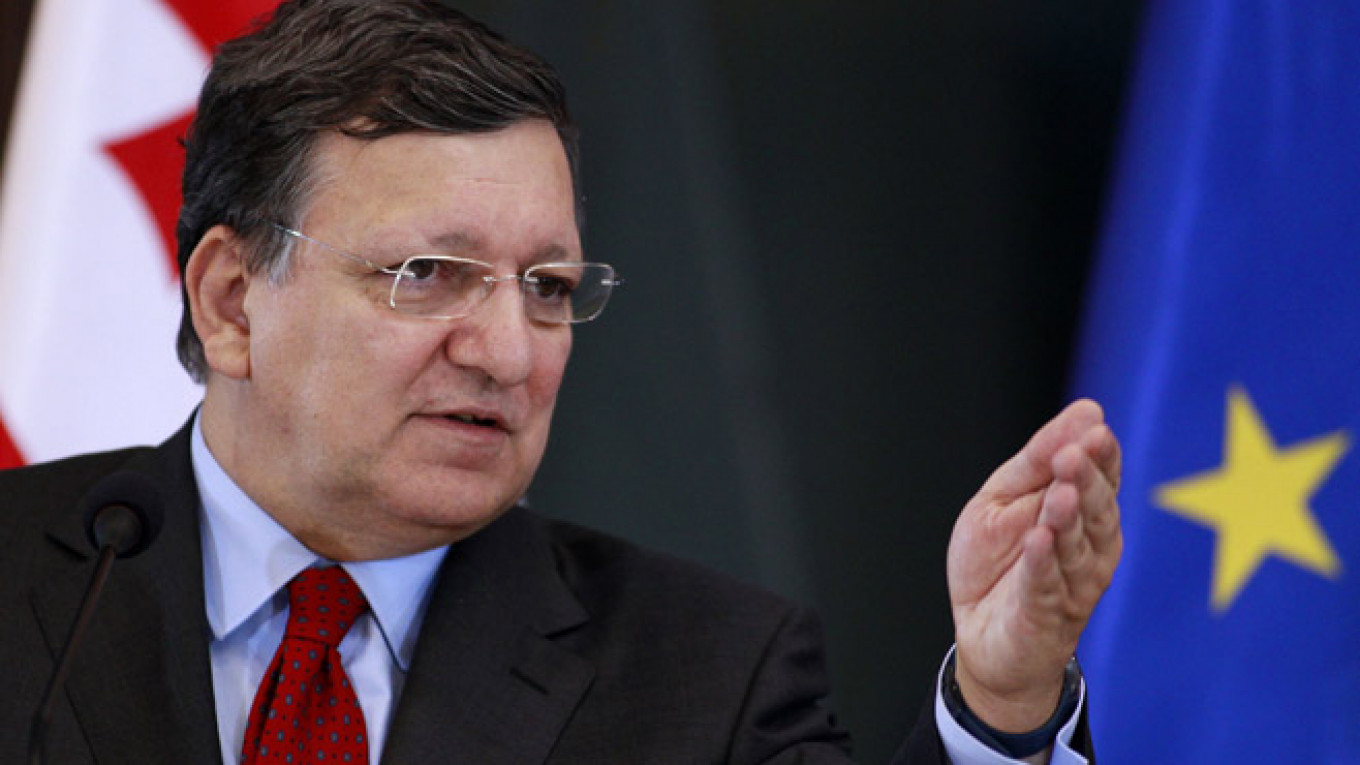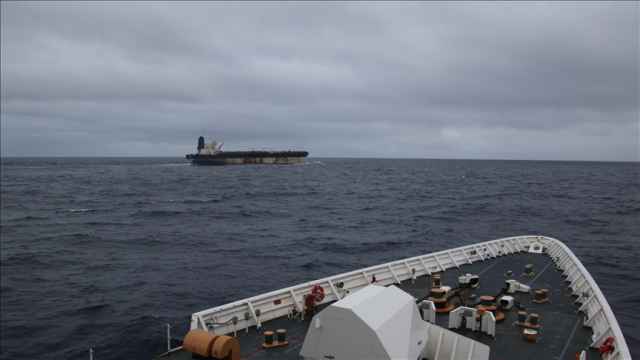BRUSSELS — Russia, Ukraine and the European Union have agreed to hold high level talks on Kiev's expected signing of an EU free trade agreement after Moscow warned last week it would retaliate with measures to protect its economy.
Ukraine's government is set to sign the free trade agreement with the European Union on June 27, despite the objections of Russia, which fears the agreement will be harmful for its own economy.
Last November, the EU rejected an idea of trilateral talks with Russia on Ukraine's EU association agreement, a deal that would mark a historic Westwards shift by the former Soviet republic away from Russia's orbit.
The current offer still does not give Russia a say on the shape of Ukraine's agreement, it only opens the way for trilateral consultations on the consequences of the deal.
But it still appears to be a partial concession on the part of the EU to better engage Moscow.
In a phone call to Russian President Vladimir Putin on Friday, European Commission president Jose Manuel Barroso offered to raise the level of consultations with Moscow on the Ukraine agreement, the commission said in a statement.
Barroso and Putin "discussed the upcoming signature on June 27 of the Association Agreement and the Deep and Comprehensive Free Trade Area with Ukraine," the statement said.
"As a way to dispel any concerns, president Barroso offered President Putin the possibility to pursue the ongoing bilateral talks with Russia at technical level as well as to hold political level consultations, associating Ukraine," it said, adding Putin agreed.
The political level talks may involve EU Commissioner for Trade Karel De Gucht and possibly Russia's economic development minister, officials said.
Ukraine's association agreement with the EU has been at the heart of the conflict between Moscow and Kiev, which led to the Russian annexation of Crimea in March and the subsequent pro-Russian separatist uprising in eastern Ukraine.
Under intense pressure from Moscow, which wants Ukraine to become part of its own Eurasian union, former Ukrainian President Viktor Yanukovych renounced plans to sign the EU deal last November, just days before the signing ceremony.
The choice of closer ties with Russia rather than the EU triggered popular protests in Ukraine that eventually toppled Yanukovych.
The EU is mediating in separate talks between Russia and Ukraine on a gas pricing dispute.
See also:
A Message from The Moscow Times:
Dear readers,
We are facing unprecedented challenges. Russia's Prosecutor General's Office has designated The Moscow Times as an "undesirable" organization, criminalizing our work and putting our staff at risk of prosecution. This follows our earlier unjust labeling as a "foreign agent."
These actions are direct attempts to silence independent journalism in Russia. The authorities claim our work "discredits the decisions of the Russian leadership." We see things differently: we strive to provide accurate, unbiased reporting on Russia.
We, the journalists of The Moscow Times, refuse to be silenced. But to continue our work, we need your help.
Your support, no matter how small, makes a world of difference. If you can, please support us monthly starting from just $2. It's quick to set up, and every contribution makes a significant impact.
By supporting The Moscow Times, you're defending open, independent journalism in the face of repression. Thank you for standing with us.
Remind me later.






